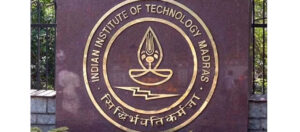Indigenous Intelligent Transportation Systems (ITS) Solutions for Indian Traffic Scenario launched under InTranSE -II Program
New Delhi : An indigenous Onboard Driver Assistance and Warning System – ODAWS, Bus Signal Priority System and Common SMart iot Connectiv (CoSMiC) software have been launched under Intelligent Transportation System Endeavor for Indian Cities Phase-II initiative of Ministry of Electronics and Information Technology (MeitY). The product was launched last week by Dr. Rajendra Kumar, Additional Secretary, Ministry of Electronics and Information Technology (MeitY) in gracious presence of Shri. Arvind Kumar, GC (R&D in Electronics), MeitY, Dr Satis V Ukkusuri, Purdue University, USA and Prof. H P Kincha, Chairman, InTranSE program, Smt. Sunita Verma, Scientist-G & HoD ESDA, MeitY and Shri Kamlesh Kumar, Scientist-D, MeitY. The product was developed as a joint initiative by Centre for Development of Advanced Computing (CDAC) and Indian Institute of Technology Madras (IIT-M). Mahindra and Mahindra was the industrial collaborator for the project.
- Onboard Driver Assistance and Warning System – ODAWS: With improved highway infrastructure and increase in number of vehicles, speed on roads has increased, further exacerbating safety concerns. As per Ministry of Road Transport and Highways of India (MoRTH), in around 84 percent of cases, “driver error” was cited as the cause of the accident. This assumes significance in the context of potential for technology applications for assisting and warning drivers in minimizing driving errors.
ODAWS incorporates vehicle-borne sensors for monitoring driver propensity and vehicle surroundings to deliver acoustic and visual alerts for driver assistance. The project involves the development of sub-modules such as the navigational unit, driver assistance console, and mmWave radar sensor. The positional and dynamic characteristics of surrounding vehicles are probed using mmWave radar sensors. The navigational sensor provides a precise geo-spatial orientation of the vehicle as well as trends in driving behaviour. The ODAWS algorithm is used to interpret sensor data and offer real-time notifications to the driver, boosting road safety.
- Bus Signal Priority System: Poor reliability of public transport system is a major reason for people to opt for personal vehicles. Improving this is essential to attract more travellers to public transport, thus leading to a more sustainable traffic solution. One of the major causes of delays for public transport buses in urban arterials is the delay at signalized intersections.
Bus signal priority System is an operational strategy that modifies normal traffic signal operations to better accommodate in-service public buses at signal-controlled intersections. Unlike a blind priority that is given for emergency vehicles, here it is a conditional priority, which is given only when there is an overall reduction in delay for all vehicles. The developed system will enable to minimize person delay by providing priority to public transport buses, either through Green extension or Red truncation, considering all vehicles approaching a signalized intersection.
- Common SMart iot Connectiv (CoSMiC): It is a middleware software providing standard based deployment of IoT adhering to oneM2M based global standard. It facilitates users and application service providers in various vertical domains to use application agnostic open standards and open interfaces for end to end communication with well-defined common service functionalities complying with oneM2M standard. With this in view, CoSMiC common service layer is used to interface any vendor specific standards and for increasing interoperability with smart city dashboard. The horizontal silo architecture ensures interoperability and data exchange between different IOT devices and applications and avoids vendor lock-in. CoSMiC comply with 12 common service functions which are Registration, Discovery, Security, Group Management, Data Management & Repository, Subscription & Notification, Device Management, Application & Service Management, Communication Management, and Delivery Handling, Network Service Exposure, Location, Service Charging and Accounting.
The CoSMiC platform also provides Interworking Proxy Entity (IPE) APIs for connecting non-oneM2M (NoDN) devices or third-party applications to get connected to the CoSMiC platform. CoSMiC provides a Dashboard page showing IoT units, products, applications, and its live data in a Geographical Information System (GIS) map. A secondary data repository is also available for historic charts and reports. CoSMiC provides an end-to-end solution for the seamless connection of IoT devices and applications.























